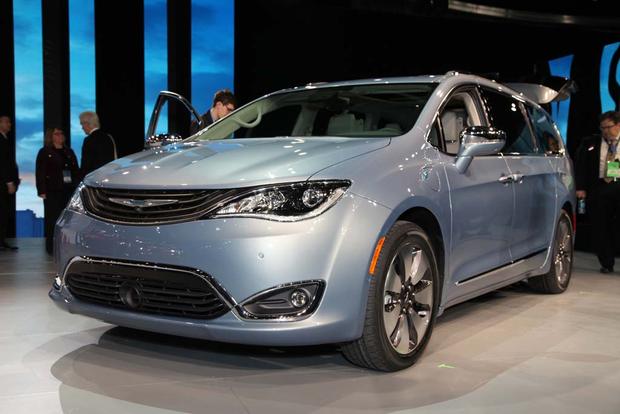-
2018 Buick Enclave “Avenir” will have ionic air purifier - April 12, 2017
-
Lease a Luxury Car for Less Than You Think - April 5, 2017
-
Shopping for a Car When Your Credit is Low - March 31, 2017
-
Aston Martin Closer to Unveiling Second-Generation Vantage - March 21, 2017
-
2017 Bentley Bentayga SUV: Offroad for $238,000 and Up - March 14, 2017
-
Pagani Huayra is Finally Here, Only $2.4M - March 9, 2017
-
Mercedes AMG E63 – For When Your Wagon Needs Drift - February 6, 2017
-
2018 Audi Q5 SUV: Enhanced Performance - January 30, 2017
-
2018 Toyota Camry Due in Late Summer - January 27, 2017
-
2018 Dodge Challenger SRT Demon Will Outstrip Hellcat - January 23, 2017
Facebook as Auto Broker: New J. D. Power Report Shows Strength of Social Media
Is there anything Facebook can’t do? A new study from J. D. Power and Associates indicates that the social media giant is also instrumental in new car sales, as a bridge for a great deal of new vehicle buyer traffic. In fact, J. D. Power found that about 6% of new vehicle buyers go from Facebook directly to an auto maker’s website. To put this in perspective, the company estimates that huge car review site Edmunds.com is responsible for about 8% of this referral traffic, and AOL Autos garners about 4%.
Although skeptics might ask if any of these Facebook users are just doing a last-minute profile or newsfeed check before buying a car, the report by J. D. Power and Associates is a pretty good indicator that many of today’s buyers are using social media to influence their buying process. J. D. Power also found that almost one third of all buyers “Google” their purchases before buying. The search engine for Google is another of those well-established Internet giants that gets used for nearly any kind of online research, so it’s not surprising that a huge percentage of car shoppers would quickly type the make and model into the Googlebar.
Among other salient facts in the J. D. Power report are the following:
- New car buyers tend to visit three or more automotive websites in the weeks before buying
- Buyers use a lot of shopping tools on third-party websites, slightly more than the average used on the auto maker’s actual site, before purchase
- SUV and crossover buyers, especially those in the luxury segment, tend to shop less online for vehicles than other buyers
J. D. Power also released a list of their estimates for the most popular car sites that refer new car buyer traffic. Edmunds is up front, along with Kelley Blue Book and its KBB.com website, followed by specific auto maker sites like Fordvehicles.com and Toyota.com
All of this clearly shows that auto sales is just another part of what is increasingly going on over broad-spectrum social media websites. Amidst all of the controversy about random Facebook style changes, as well as user privacy, this report adds to the many fundamental questions that are now circulating in the media about the future role of Mark Zuckerberg’s social paradise.














